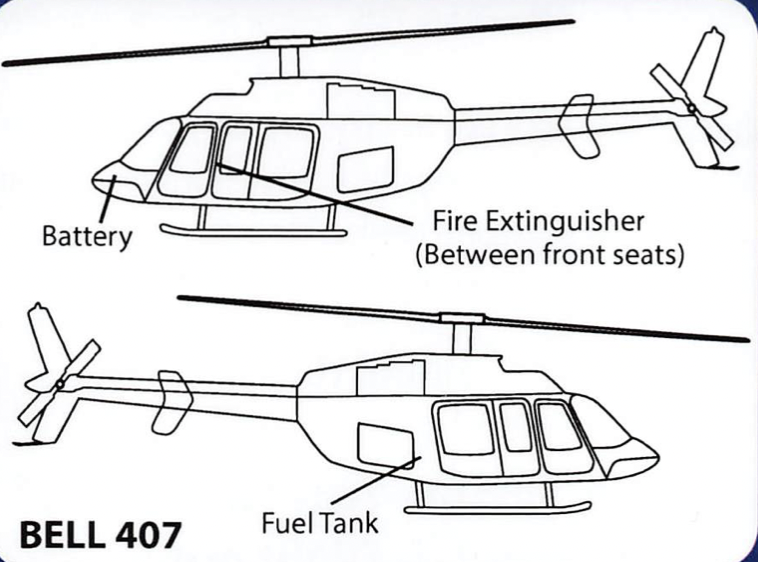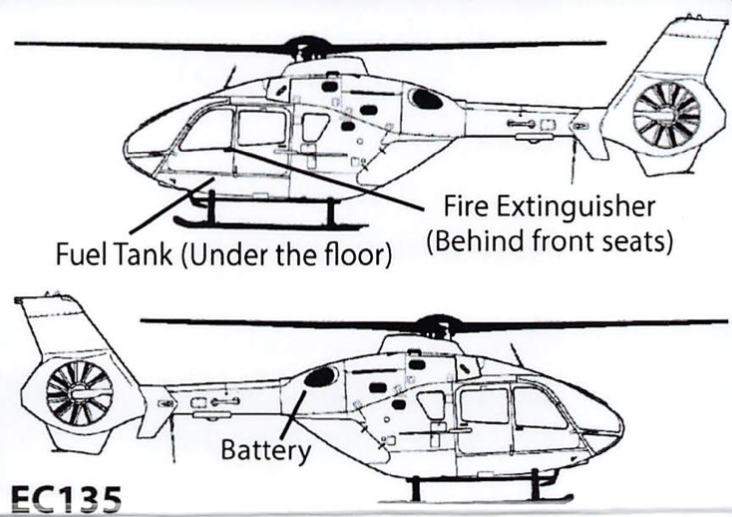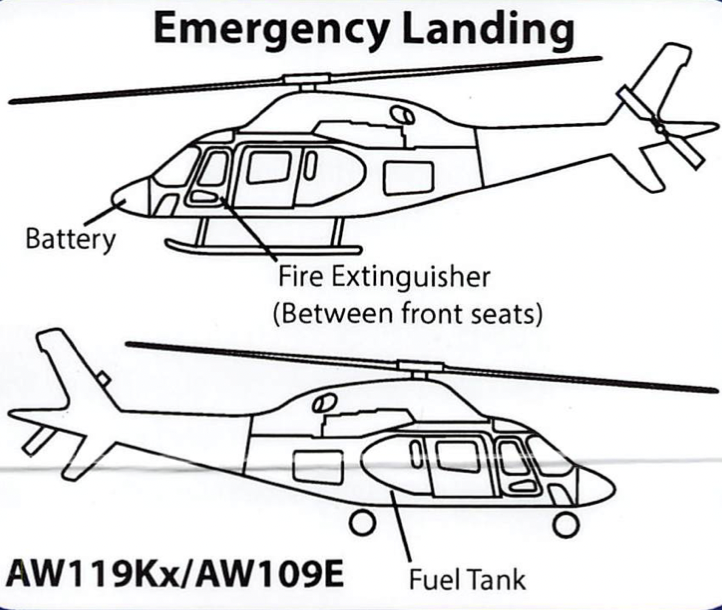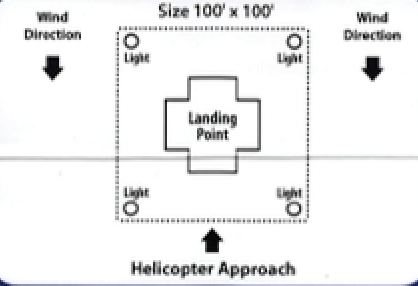
Home > Life Flight




Landing Zone (LZ) Guidlines
- Name or requesting agency
- Callback number
- Address of location
- GPS Coordinates in Degrees & Decimal minutes format (DDD°MMM.MM')
- Ground contact & radio frequency
- Any other responding aircraft
- 100'x100' Area
- Marking: 4 cones day, or stones chemlights (night) if available
- Surface: < 5 degree slope, free of loose debris & animals
- Loose dirt may need to be watered down
- Keep all bystanders at least 100' from aircraft
- Check of stakes/obstacles in LZ if possible
- Alert aircraft when in sight
- Describe LZ Locations and how it's marked
- Identify any hazards or obstructions
- Minimise radio traffic on aircraft final approach
- If any imminent hazard observed while aircraft on final approach immediately transmit 'abort landing'
- Keep radio frequencies open until aircraft departs
- Stay clear of tail rotor at a all times
- Approach aircraft only when directed by flight crew
- Never direct bright lights or lasers toward aircraft
- Follow flight crew instructions
- Secure all loose objects in LZ (ball caps/blankets)
- Protect eyes from blowing dirt & debris
- In case of an emergency landing - Keep Safe!
- Protect yourself and others from flying debris
- Don't approach the aircraft until all moving parts have stopped
- Call 911 for additional fire, EMS, & air resources as needed
© 2020-2025 Ross Dargahi - Disclaimer - About - Feedback